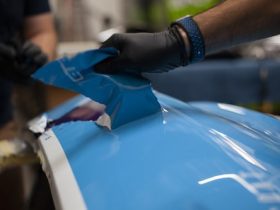There are some pretty obvious ways to get pulled over some of which include speeding, driving like a maniac, or driving at night without your headlights on. While these are just some of the most obvious, there are still plenty of other reasons why a police officer might stop you in your tracks.
A portable radar detector is a great way to get some advanced warning that the cops are lying in wait up ahead, but they can also alert you to traffic signals, speed traps, changing speed zones, and other situations ahead, especially if you have a radar detector equipped with GPS and other connectivity.
Did you know that 77% of drivers have been in at least one accident? The statistics could be worse than you ever thought possible, all because someone wasn’t paying attention. Here are some common reasons why you might get pulled over so you can be on the lookout next time you take a drive.
Speeding
Stopping drivers for speeding is a priority for most police officers. Speeding poses a danger to all drivers on the road, it’s illegal, and it’s easy to spot. Statistics show that for every one hundred speeding tickets given each month, it reduces the number of crashes by 14.3 and the number of road-related injuries by 5.6.
If speeding gets the better of you, equip yourself with something to remind you to stay safe and slow down, especially as you near an intersection, speed trap, police officer running radar, or sudden change in speed limit.
Distracted Driving
Texting, eating, listening to the radio, and talking while driving can all be distractions. You don’t always intend for them to be. Checking that notification really quickly or rocking out to your favorite song can turn into a fender bender before you know it, or worse.
One of the main reasons for distracted driving these days is cell phones. As many as 40% of teens in the United States have admitted to being in a car while the driver was using a cell phone (and the actual number is probably much higher).
Police issue distracted driving tickets at an alarming rate, but there still doesn’t seem to be enough police intervention when you watch the news or hear about the accidents caused by dangerous cell phone use.
Equipment Violations
There’s a reason why the law dictates why you should be driving with your headlights on while it’s raining, why your windshield shouldn’t have cracks, or why your license plates shouldn’t be expired. These types of offences are easy to spot and pretty simple bait for police officers.
While illegal equipment use is splattered all over the board, the most common reason for pulling someone over for improper use of equipment is their window tint. However, following closely behind are broken windshields, expired tags, and burned out lights. There’s no way to prevent a ticket here other than making sure your equipment is up to code. Check all your lights monthly, especially headlights and brake lights.
Tailgating and Lane Changes
Sooner or later, you’re bound to cause an accident if you’re constantly following too closely behind other cars or you’re swerving in and out of lanes without using your blinker. You have to give other drivers some indication of what you’re doing out there.
Police officers closely monitor for this type of reckless driving. Moving without looking, cutting people off, or tailgating are accidents waiting to happen. Another important tip to remember is that the left lane is for passing and the right lane is for cruising. Driving too slowly in the wrong lane can cause a lot of traffic problems.
Use Common Sense
Use your head out on the road. You’re operating a ton or more of moving metal, and you can never be too careful. It’s no surprise that erratic driving attracts a lot of attention. You can protect yourself from, well, yourself, with equipment that’s intended to remind you to slow down and think.
You can control yourself by implementing radar detectors and other devices that alert you to dangers ahead and remind you that the speed limit is about to drop. Safe driving is good for you and those around you. Do us all a favor and don’t be one of the reasons the police have to pull you over.







